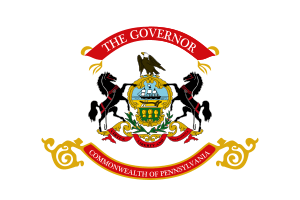List of Governors of Pennsylvania
| Governor of the Commonwealth of Pennsylvania | |
|---|---|
|
| |
|
| |
| Residence | Governor's Residence |
| Term length |
Four years renewable once |
| Inaugural holder | Thomas Mifflin |
| Formation | December 21, 1790 |
| Deputy | Michael J. Stack III |
| Salary | $187,256 (2013)[1] |
| Website | governor.pa.gov |
The Governor of the Commonwealth of Pennsylvania is the head of the executive branch of Pennsylvania's state government[2] and serves as the commander-in-chief of the state's military forces.[3]
The governor has a duty to enforce state laws, and the power to approve or veto bills passed by the Pennsylvania Legislature[4] and to convene the legislature.[5] The governor may grant pardons except in cases of impeachment, but only when recommended by the Board of Pardons.[6]
There have been seven presidents and 46 governors of Pennsylvania, with two governors serving non-consecutive terms, totaling 55 terms in both offices. The longest term was that of the first governor, Thomas Mifflin, who served three full terms as governor in addition to two years as president. The shortest term belonged to John Bell, who served only 19 days as acting governor after his predecessor resigned. The current governor is Tom Wolf, whose term began on January 20, 2015.
Governors
Pennsylvania was one of the original thirteen colonies, and was admitted as a state on December 12, 1787. Prior to declaring its independence, Pennsylvania was a colony of the Kingdom of Great Britain; see the list of colonial governors for the pre-statehood period.
Presidents of the Supreme Executive Council
The first Pennsylvania constitution in 1776 created the Supreme Executive Council as the state's executive branch, with the President as its head.[7] The president was chosen annually by the council, though with no specific term dates.[8]
The original 1776 constitution created the position of "vice-president," though no provision was made if the office of president became vacant, which occurred four times. Contemporary sources continue to label the chief executive in such times as the vice president, without any notion of succeeding to the presidency. One acting president, George Bryan, was subsequently recognized as a full-fledged governor, due to his acting as president for over six months.
| # | Portrait | President | Took office | Left office | Vice President |
|---|---|---|---|---|---|
| 1 | %2C_by_Charles_Willson_Peale_(1741_-_1827).jpg) |
Thomas Wharton Jr. | March 5, 1777 | May 23, 1778 [note 1] |
George Bryan |
| 2 |  |
George Bryan | May 23, 1778 | December 1, 1778 | acting as president [note 2] |
| 3 | 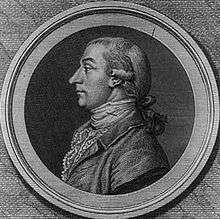 |
Joseph Reed | December 1, 1778 | November 15, 1781 | George Bryan [note 3] |
| Matthew Smith [note 3] | |||||
| William Moore | |||||
| 4 |  |
William Moore | November 15, 1781 | November 7, 1782 | James Potter |
| 5 | 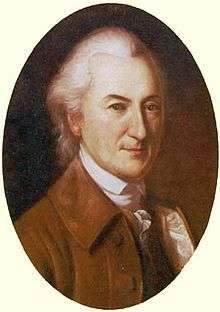 |
John Dickinson | November 7, 1782 | October 18, 1785 | James Ewing |
| James Irvine [note 3] | |||||
| Charles Biddle | |||||
| 6 | 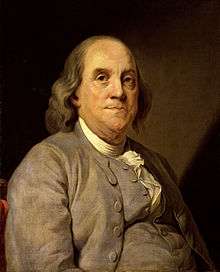 |
Benjamin Franklin | October 18, 1785 | November 5, 1788 | Charles Biddle |
| Peter Muhlenberg [note 3] | |||||
| David Redick | |||||
| 7 | 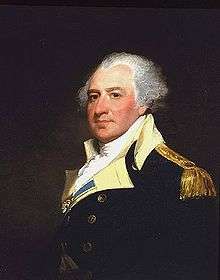 |
Thomas Mifflin | November 5, 1788 | December 21, 1790 | George Ross |
Governors of the Commonwealth of Pennsylvania
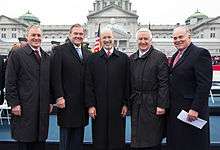
The 1790 constitution abolished the council and replaced the president with a governor,[9] and established a three-year term for governor commencing on the third Tuesday of the December following the election, with governors not allowed to serve more than nine out of any twelve years.[10] The 1838 constitution moved the start of the term to the third Tuesday of the January following the election, and allowed governors to only serve six out of any nine years.[11] The 1874 constitution lengthened the term to four years, and prohibited governors from succeeding themselves.[12] The current constitution of 1968 changed this to allow governors to serve two consecutive terms.[13] There are no limits on the number of terms a governor may serve in total as long as there is a four-year break after a second term.
Under the 1968 constitution, Milton Shapp was the first governor to serve 2 terms, and Tom Corbett was the first incumbent governor to lose a re-election bid.
If the office of governor becomes vacant through death, resignation, or conviction on impeachment, the lieutenant governor becomes governor for the remainder of the term; if the office is only temporarily vacant due to disability of the governor, the lieutenant governor only acts out the duties of governor.[14] Should both offices be vacant, the president pro tempore of the state senate becomes governor.[15] The position of lieutenant governor was created in the 1874 constitution; prior to then, the speaker of the senate would act as governor in cases of vacancy. Originally, the lieutenant governor could only act as governor; it was not until the 1968 constitution that the lieutenant governor could actually become governor in that fashion. The office of governor has been vacant for an extended period once, a 17-day gap in 1848 between the resignation of the previous governor and the swearing in of his acting successor. Governors and lieutenant governors are elected on the same ticket.[16]
- Parties
Anti-Masonic (1) Democratic (12) Democratic-Republican (6) None (1) Republican (26) Whig (2)
| # | Portrait | Governor | Took office | Left office | Party | Lt. Governor [note 4] |
Terms [note 5] | ||
|---|---|---|---|---|---|---|---|---|---|
| 1 |  |
Thomas Mifflin | December 21, 1790 | December 17, 1799 | None [note 6] |
None | 3 [note 7] | ||
| 2 |  |
Thomas McKean | December 17, 1799 | December 20, 1808 | Democratic- Republican |
3 | |||
| 3 | 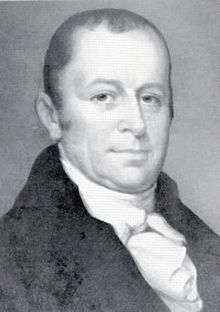 |
Simon Snyder | December 20, 1808 | December 16, 1817 | Democratic- Republican |
3 | |||
| 4 |  |
William Findlay | December 16, 1817 | December 19, 1820 | Democratic- Republican |
1 | |||
| 5 | 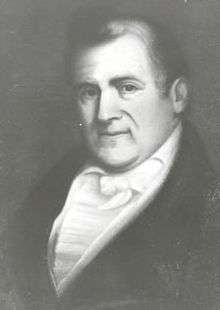 |
Joseph Hiester | December 19, 1820 | December 16, 1823 | Democratic- Republican |
1 | |||
| 6 | 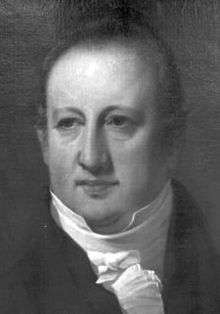 |
John Andrew Shulze | December 16, 1823 | December 15, 1829 | Democratic- Republican |
2 | |||
| 7 | 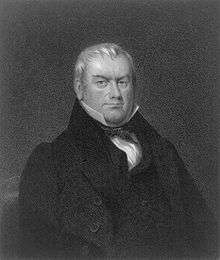 |
George Wolf | December 15, 1829 | December 15, 1835 | Democratic- Republican |
2 | |||
| 8 | Joseph Ritner | December 15, 1835 | January 15, 1839 | Anti-Masonic | 1 [note 8] | ||||
| 9 | 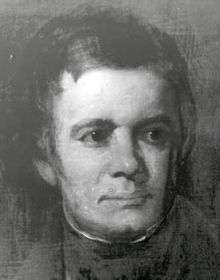 |
David R. Porter | January 15, 1839 | January 21, 1845 | Democratic | 2 [note 9] | |||
| 10 |  |
Francis R. Shunk | January 21, 1845 | July 9, 1848 | Democratic | 1 1⁄2 [note 10] | |||
| — | Office vacant | July 9, 1848 | July 26, 1848 | — | — [note 11] | ||||
| 11 | 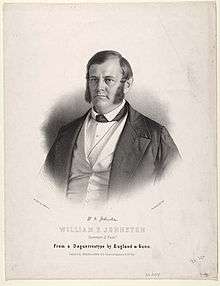 |
William F. Johnston | July 26, 1848 | January 20, 1852 | Whig | 1 1⁄2 [note 12] | |||
| 12 |  |
William Bigler | January 20, 1852 | January 16, 1855 | Democratic | 1 | |||
| 13 |  |
James Pollock | January 16, 1855 | January 19, 1858 | Whig | 1 | |||
| 14 | 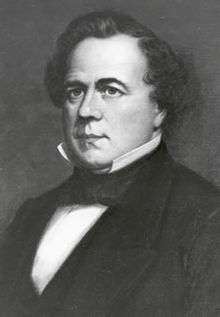 |
William F. Packer | January 19, 1858 | January 15, 1861 | Democratic | 1 | |||
| 15 | 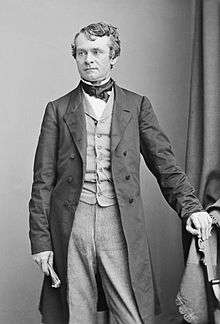 |
Andrew Gregg Curtin | January 15, 1861 | January 15, 1867 | Republican | 2 | |||
| 16 | 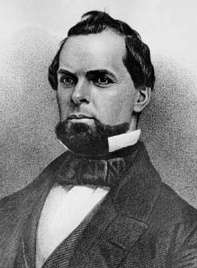 |
John W. Geary | January 15, 1867 | January 21, 1873 | Republican | 2 | |||
| 17 | 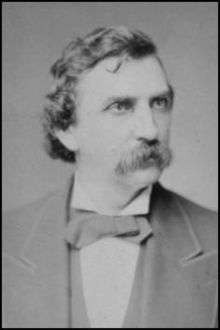 |
John F. Hartranft | January 21, 1873 | January 21, 1879 | Republican | None | 2 [note 13] | ||
| John Latta | |||||||||
| 18 |  |
Henry M. Hoyt | January 21, 1879 | January 16, 1883 | Republican | Charles Warren Stone | 1 | ||
| 19 |  |
Robert E. Pattison | January 16, 1883 | January 18, 1887 | Democratic | Chauncey Forward Black | 1 | ||
| 20 |  |
James A. Beaver | January 18, 1887 | January 20, 1891 | Republican | William T. Davies | 1 | ||
| 19 |  |
Robert E. Pattison | January 20, 1891 | January 15, 1895 | Democratic | Louis Arthur Watres | 1 | ||
| 21 |  |
Daniel H. Hastings | January 15, 1895 | January 17, 1899 | Republican | Walter Lyon | 1 | ||
| 22 | 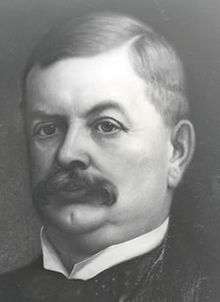 |
William A. Stone | January 17, 1899 | January 20, 1903 | Republican | John P. S. Gobin | 1 | ||
| 23 |  |
Samuel W. Pennypacker | January 20, 1903 | January 15, 1907 | Republican | William M. Brown | 1 | ||
| 24 | 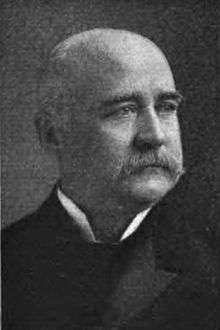 |
Edwin Sydney Stuart | January 15, 1907 | January 17, 1911 | Republican | Robert S. Murphy | 1 | ||
| 25 | 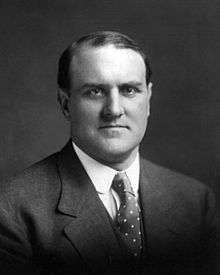 |
John K. Tener | January 17, 1911 | January 19, 1915 | Republican | John Merriman Reynolds | 1 | ||
| 26 |  |
Martin Grove Brumbaugh | January 19, 1915 | January 21, 1919 | Republican | Frank B. McClain | 1 | ||
| 27 |  |
William Cameron Sproul | January 21, 1919 | January 16, 1923 | Republican | Edward E. Beidleman | 1 | ||
| 28 |  |
Gifford Pinchot | January 16, 1923 | January 18, 1927 | Republican | David J. Davis | 1 | ||
| 29 |  |
John Stuchell Fisher | January 18, 1927 | January 20, 1931 | Republican | Arthur James | 1 | ||
| 28 |  |
Gifford Pinchot | January 20, 1931 | January 15, 1935 | Republican | Edward C. Shannon | 1 | ||
| 30 |  |
George Howard Earle III | January 15, 1935 | January 17, 1939 | Democratic | Thomas Kennedy | 1 | ||
| 31 | Arthur James | January 17, 1939 | January 19, 1943 | Republican | Samuel S. Lewis | 1 | |||
| 32 |  |
Edward Martin | January 19, 1943 | January 2, 1947 | Republican | John C. Bell, Jr. | 1⁄2 [note 14] | ||
| 33 |  |
John C. Bell Jr. | January 2, 1947 | January 21, 1947 | Republican | vacant | 1⁄2 [note 15] | ||
| 34 |  |
James H. Duff | January 21, 1947 | January 16, 1951 | Republican | Daniel B. Strickler | 1 | ||
| 35 |  |
John S. Fine | January 16, 1951 | January 18, 1955 | Republican | Lloyd H. Wood | 1 | ||
| 36 |  |
George M. Leader | January 18, 1955 | January 20, 1959 | Democratic | Roy E. Furman | 1 | ||
| 37 |  |
David L. Lawrence | January 20, 1959 | January 15, 1963 | Democratic | John Morgan Davis | 1 | ||
| 38 |  |
William Scranton | January 15, 1963 | January 17, 1967 | Republican | Raymond P. Shafer | 1 | ||
| 39 | 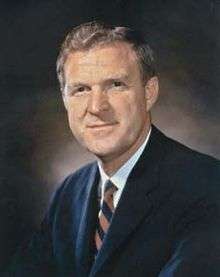 |
Raymond P. Shafer | January 17, 1967 | January 19, 1971 | Republican | Raymond J. Broderick | 1 | ||
| 40 |  |
Milton Shapp | January 19, 1971 | January 16, 1979 | Democratic | Ernest P. Kline | 2 [note 16] | ||
| 41 |  |
Dick Thornburgh | January 16, 1979 | January 20, 1987 | Republican | William Scranton, III | 2 | ||
| 42 |  |
Robert P. Casey | January 20, 1987 | January 17, 1995 | Democratic | Mark Singel | 2 [note 17] | ||
| 43 | 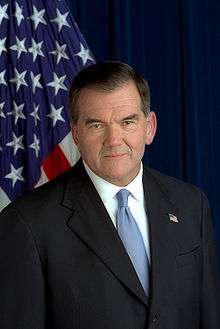 |
Tom Ridge | January 17, 1995 | October 5, 2001 | Republican | Mark S. Schweiker | 1 1⁄2 [note 18] | ||
| 44 |  |
Mark S. Schweiker | October 5, 2001 | January 21, 2003 | Republican | Robert Jubelirer | 1⁄2 [note 19] | ||
| 45 | 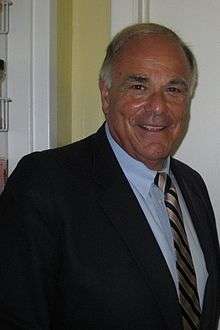 |
Ed Rendell | January 21, 2003 | January 18, 2011 | Democratic | Catherine Baker Knoll[note 20] | 2 | ||
| Joe Scarnati[note 21] | |||||||||
| 46 |  |
Tom Corbett | January 18, 2011 | January 20, 2015 | Republican | Jim Cawley | 1 | ||
| 47 |  |
Tom Wolf | January 20, 2015 | Incumbent | Democratic | Michael J. Stack III | |||
Other high offices held
This is a table of other governorships, congressional and other federal offices, and ranking diplomatic positions in foreign countries held by Pennsylvania governors. All representatives and senators mentioned represented Pennsylvania except where noted.
- † Denotes those offices from which the governor resigned to take the governorship.
The Governor's Residence
See Also Pennsylvania Governor's Residence
See Also Governor's Residence via Pennsylvania Politicals
From Pennsylvania Politicals: Pennsylvania has never used the name "mansion" to describe the governor's official home. Even when the first bill was proposed to purchase a home, the word mansion was not used. Rather, the home was and is designated as a "residence." Even during the 79 years that Keystone Hall was used, it was known simply as that, Keystone Hall. Even today, the home located at 2035 North Front Street is officially known as "The Governor's Residence" not "The Governor's Mansion." The distinction may be both psychological and historical. It may help to remind the governor that he lives in the people's house. It may also remind the electorate that the we, as citizens, own the home and allow the individuals we choose to reside there only temporarily.
As early as 1852, the Pennsylvania House of Representatives proposed funds for "the erection of a dwelling for the residence of the Governor of this Commonwealth." Six years later, on January 18, 1858, Governor Pollock signed the bill authorizing funds for the purchase of a building suitable for the governor. By 1861 and the start of the Civil War, Governor Curtin found the home to be too small to handle the full load of war-related business. Funds were authorized to purchase 313 North Front Street. Governor Curtin and family moved into the residence in 1864.
Twenty years later, the neighboring home was purchased, joined together, and a faux façade was built. Keystone Hall was now a fully functioning residence for the governor. By 1959, the home had fallen into such disrepair that the home was sold and demolished the following year. (The governors used the State House at Indiantown Gap during this period.) Arthur James proposed a new governors residence in 1941. He wanted a grand house built in the William & Mary (Williamsburg) style architecture. However, it took over 25 years for his idea to come to fruition. In 1968, the current residence opened to welcome the Ray Shafer family. It has been the home of the governor ever since.
Living former U.S. governors of Pennsylvania
As of May 2015, there are five former U.S. governors of Pennsylvania who are currently living at this time, the oldest U.S. governor of Pennsylvania being Dick Thornburgh (served 1979–1987, born 1932). The most recent death of a former U.S. governor of Pennsylvania was that of William Scranton (served 1963–1967, born 1917), on July 28, 2013. The most recently serving U.S. governor of Pennsylvania to die was Robert Patrick Casey, who served from 1987 to 1995 and died at the age of sixty-eight on May 30, 2000.
| Governor | Gubernatorial term | Date of birth (and age) |
|---|---|---|
| Dick Thornburgh | 1979–1987 | July 16, 1932 |
| Tom Ridge | 1995–2001 | August 26, 1945 |
| Mark Schweiker | 2001–2003 | January 31, 1953 |
| Ed Rendell | 2003–2011 | January 5, 1944 |
| Tom Corbett | 2011–2015 | June 17, 1949 |
See also
Notes
- ↑ Died in office.
- ↑ As Vice President of the Supreme Executive Council, acted as president. Four vice presidents acted as president at various times; however, Bryan's lengthy term has caused his term to since be recognized as being equivalent to president. Contemporary sources listed him only as vice president, acting out the duties of president.
- 1 2 3 4 Resigned; no reason was recorded by the Supreme Executive Council.
- ↑ The office of lieutenant governor was not created until the 1873 Constitution, first being filled in 1875.
- ↑ The fractional terms of some governors are not to be understood absolutely literally; rather, they are meant to show single terms during which multiple governors served, due to resignations, deaths and the like.
- ↑ The Federalist Party nominated Mifflin, but he himself carried no party label.
- ↑ Mifflin was elected governor three times under the 1790 Constitution, having previously been elected once as President of the Supreme Executive Council.
- ↑ Ritner was the last to serve before the 1838 constitution limited governors to serving six years out of any nine years; that constitution also changed the term to commence the next January from the election, extending Ritner's term by a month.
- ↑ First governor to serve under the 1838 constitution.
- ↑ Resigned due to illness; he died of tuberculosis only 11 days later.
- ↑ Following Francis R. Shunk's resignation, an interregnum of 17 days occurred before the speaker of the state senate, William F. Johnston, was sworn in.
- ↑ As speaker of the state senate, filled unexpired term, and was subsequently elected governor in his own right.
- ↑ First governor under the 1874 constitution, which prevented governors from succeeding themselves and lengthened terms to four years. Since Hartranft was originally elected under the previous constitution, he was allowed to succeed himself. Hartranft's first term was shortened from three to two years to fit the electoral schedule of the new constitution.
- ↑ Resigned to take an elected seat in the United States Senate. While official sources state Martin resigned on January 3, most contemporary sources reported his resignation as occurring on January 2.[17][18]
- ↑ As lieutenant governor, acted as governor for unexpired term.
- ↑ First governor under the 1968 constitution, and thus eligible to succeed himself.
- ↑ On June 14, 1993, Casey transferred executive authority to Lieutenant Governor Singel, and later that day underwent a heart-liver transplant operation. Singel acted as governor until Casey resumed the powers and duties of the office six months later on December 13, 1993. Because Casey never officially resigned, Singel was only an acting governor.
- ↑ Resigned to be Director of the Office of Homeland Security.
- ↑ As lieutenant governor, filled unexpired term.
- ↑ Died in office.
- ↑ As president pro tempore of the state senate, acted as lieutenant governor.
References
- General
- "Governors Database: Pennsylvania". National Governors Association. National Governors Association. 2008. Archived from the original on March 16, 2011. Retrieved April 1, 2008.
- Constitutions
- "Constitution of the Commonwealth of Pennsylvania". Commonwealth of Pennsylvania. 1968. Retrieved April 21, 2008.
- "1874 Constitution of the Commonwealth of Pennsylvania" (PDF). Constitution Party of Pennsylvania. Archived from the original (PDF) on April 15, 2010. Retrieved July 13, 2010.
- "1838 Constitution of the Commonwealth of Pennsylvania" (PDF). Constitution Party of Pennsylvania. Archived from the original (PDF) on April 15, 2010. Retrieved July 13, 2010.
- "1790 Constitution of the Commonwealth of Pennsylvania" (PDF). Constitution Party of Pennsylvania. Archived from the original (PDF) on April 15, 2010. Retrieved 2008-04-21.
- "1776 Constitution of the Commonwealth of Pennsylvania" (PDF). Constitution Party of Pennsylvania. Archived from the original (PDF) on April 15, 2010. Retrieved July 13, 2010.
- Specific
- ↑ "CSG Releases 2013 Governor Salaries". The Council of State Governments. June 25, 2013. Retrieved November 23, 2014.
- ↑ PA Constitution article IV, § 2
- ↑ PA Constitution article IV, § 7
- ↑ PA Constitution article IV, § 15
- ↑ PA Constitution article IV, § 12
- ↑ PA Constitution article IV, § 9
- ↑ 1776 Constitution § 3
- ↑ 1776 Constitution § 19
- ↑ 1790 Constitution article II, § 1
- ↑ 1790 Constitution article IV, § 3
- ↑ 1838 Constitution article II, § 3
- ↑ 1874 Constitution article IV, § 3
- ↑ PA Constitution article IV, § 3
- ↑ PA Constitution article IV, § 13
- ↑ PA Constitution article IV, § 14
- ↑ "Executive Branch of the Several States". The Green Papers. Retrieved April 30, 2008.
- ↑ "Martin Quits Today as Penna. Governor; Bell to Take Over". Gettysburg Times. January 2, 1947. Retrieved April 30, 2008.
- ↑ Stevens, Sylvester Kirby (1964). Pennsylvania: Birthplace of a Nation. New York: Random House. p. 375.
- ↑ "Joseph Reed". University of Pennsylvania Archives and Records Center. Retrieved July 13, 2010.
- ↑ "John Dickinson". Delaware's Governors. State of Delaware. Retrieved July 9, 2010.
- ↑ "Benjamin Franklin (1706-1790)". U.S. Department of State. Retrieved July 9, 2010.
- ↑ "Thomas Mifflin". U.S. Army. Retrieved July 9, 2010.
- ↑ "Delaware's Governors". State of Delaware. Retrieved July 9, 2010.
- ↑ Wagenseller, George Washington (1919). Snyder County Annals Volume 1. Middleburgh, Pennsylvania: The Middleburgh Post. p. 8.
- ↑ "Findlay, John". Biographical Directory of the United States Congress. Clerk of the United States House of Representatives and Historian of the United States Senate. Retrieved July 9, 2010.
- ↑ "HIESTER, Joseph". Biographical Directory of the United States Congress. Clerk of the United States House of Representatives and Historian of the United States Senate. Retrieved April 30, 2008.
- ↑ "WOLF, George". Biographical Directory of the United States Congress. Clerk of the United States House of Representatives and Historian of the United States Senate. Retrieved April 30, 2008.
- ↑ "Bigley, William". Biographical Directory of the United States Congress. Clerk of the United States House of Representatives and Historian of the United States Senate. Retrieved July 9, 2010.
- ↑ "Pollock, James". Biographical Directory of the United States Congress. Clerk of the United States House of Representatives and Historian of the United States Senate. Retrieved July 9, 2010.
- ↑ "Curtin, Andrew Gregg". Biographical Directory of the United States Congress. Clerk of the United States House of Representatives and Historian of the United States Senate. Retrieved July 9, 2010.
- ↑ "Kansas Governors". Kansas State Historical Society. Retrieved July 9, 2010.
- ↑ "STONE, William Alexis". Biographical Directory of the United States Congress. Clerk of the United States House of Representatives and Historian of the United States Senate. Retrieved April 30, 2008.
- ↑ "TENER, John Kinley". Biographical Directory of the United States Congress. Clerk of the United States House of Representatives and Historian of the United States Senate. Retrieved April 30, 2008.
- ↑ "Former U.S. Ambassadors to Austria" (PDF). U.S. Department of State. Retrieved July 9, 2010.
- ↑ "Martin, Edward". Biographical Directory of the United States Congress. Clerk of the United States House of Representatives and Historian of the United States Senate. Retrieved July 9, 2010.
- ↑ "Duff, James Henderson". Biographical Directory of the United States Congress. Clerk of the United States House of Representatives and Historian of the United States Senate. Retrieved July 9, 2010.
- ↑ "History of USUN Ambassadors". United States Mission to the U.N. Archived from the original on 2013-05-17. Retrieved July 9, 2010.
- ↑ "Dick Thornburgh". The Dick Thornburgh Papers. University of Pittsburgh. Retrieved July 9, 2010.
- ↑ "Tom Ridge, Homeland Security Secretary 2003 - 2005". Division of Homeland Security. Retrieved July 9, 2010.
External links
| Wikimedia Commons has media related to Governors of Pennsylvania. |
